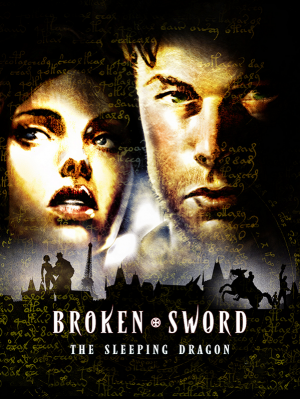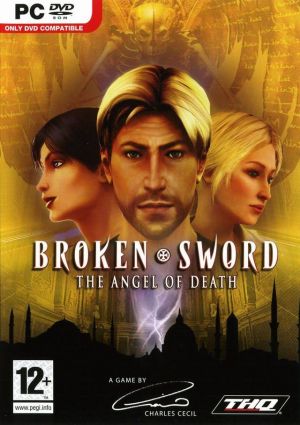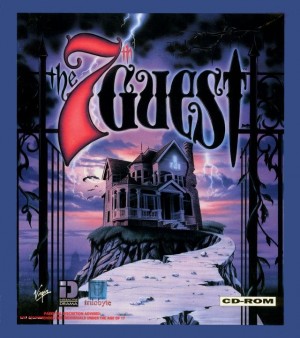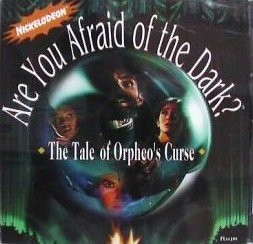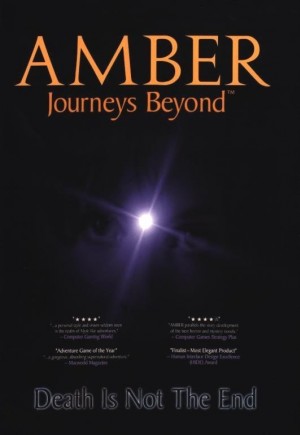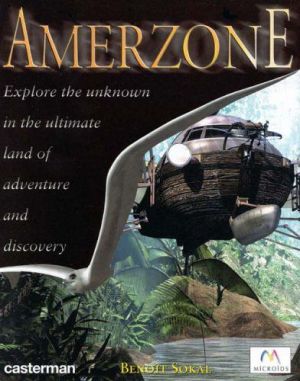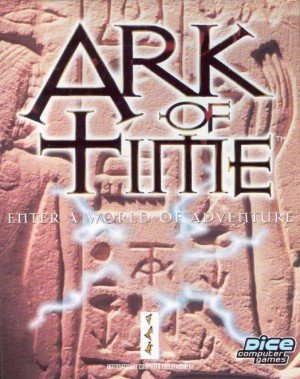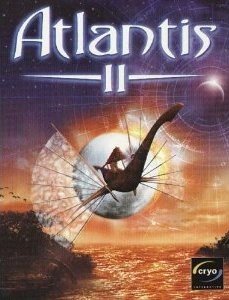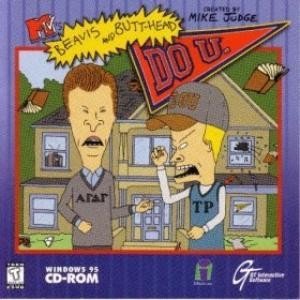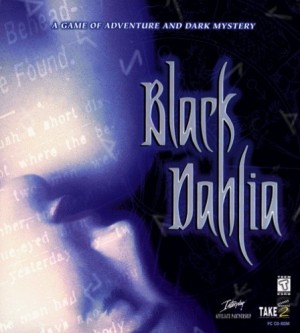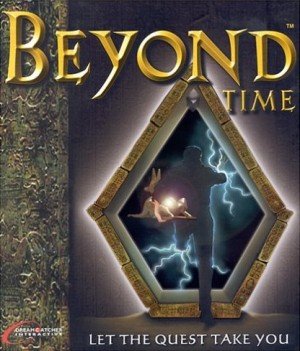Charles Cecil interview
Famous for his work on adventure classics like Broken Sword and Beneath a Steel Sky, infamous for his statements about the death of point & click... the very name Charles Cecil evokes strong feelings in many adventure gamers. AG shot the breeze with him at the Game Developer's Conference in March and found the man behind the name to be a down-to-earth, charming guy who really does care what adventure gamers want. Read on to find out why.
Let's talk about Broken Sword 4.
Okay. [takes a deep breath] At the end of Broken Sword 3, it wasn't financially viable to continue to run a single product studio, with all the staff, so we scaled right back. When we agreed to write Broken Sword 4 with THQ, we decided to work with a company called Sumo Digital. They took our source code, they resurrected it, and they updated it. They took on a number of Revolution staff; I'm also working with a number of other people that worked on the team previously. So a lot of the people that were involved in Broken Sword 3 are still involved in Broken Sword 4, but the way that we're doing it is completely different. I'm in a great position because instead of having to worry about staffing and technology, I can really concentrate on the gameplay, on the story, and on the design, which obviously in an adventure is really paramount.
 |
 |
So Broken Sword 4 is 3D?
Yes.
Is it point & click?
It's both point & click and direct control.
How does that work? You can choose one or the other?
Yes, you can play purely point & click, or you can choose to use both the mouse and the keyboard.
Are gamepads supported?
We haven't decided. They probably will be.
I played Broken Sword 3 with a gamepad, and I found that made it much easier to control.
I quite liked it with the keyboard. A lot of people didn't, and we've very much taken on board the fact that people resented us moving away from point & click. We have a very loyal audience, and if people complain, we take what they say seriously, because that ultimately means that we can keep writing games. Our primary audience is the people that play Broken Sword. We want to expand, of course, and that's what we're always aiming for, but we won't do anything if we can possibly help it that is likely to alienate the core audience.
 |
 |
How about action elements? That's the other thing people complained about, a lot.
I made a mistake in that. The principle, which I still completely stand by, is that we want to put the player under pressure. Like in a movie, you want to have the pacing go up and down. The thing that I think we did wrong is that we made people make split-second decisions. We've changed it slightly, in that you are in a situation in which you have a limited time... right from the very beginning there are guys trying to smash the door down with fire axes, and you've got to get out, but you have a fair bit of time to do it. So it's unlikely that they're going to break through, because particularly in the beginning, we're giving hints as to what you do. This idea of pressure is important, and it has featured in all our previous Broken Sword games. In Broken Sword 1, the player had a limited time to trick Khan on the cliff top; in Broken Sword 2 Nico had to stab her assailant before she was strangled. The old school adventures—Monkey Island, Sam & Max, Day of the Tentacle—they're great games, but they followed very different principles. They were a product of the nineties, and those games aren't selling anymore. I think we need to be more filmic, and part of that is the idea of actually changing the pace.
Any more crate puzzles?
[laughs] You're asking me all the difficult questions! Again, I must take responsibility. What happened with those crate puzzles is that... the crate puzzles were absolutely legitimate in the sense that at the very beginning you move the crate around the plane to balance it. That works well, because that's an adventure puzzle. Then you have to move the crate onto the pressure pad, change something, come back, move it again, that worked well. What happened was that the designers—and I'm not blaming them, because I should have been managing this better—they extrapolated more and more box puzzles. And what I should have realized is that the box puzzles should have been used as they were in the beginning, instead of purely as blocking mechanisms. The problem arose when they were used purely for blocking, or worse, when they were used for blocking at a point in the act when you expected to be able to move forward. So the answer is no, we haven't gotten rid of moving crates, because it's a legitimate puzzle mechanic. What we've gotten rid of is the idea of blocking for the sake of blocking.
So you make sure that if the puzzle's in there, it has something to do with the story, and moves you forward?
Absolutely, and also, like on the plane, the box puzzle was not to block you, it was to balance the plane. In the cave, it wasn't a block, it was there to put pressure on the pressure pad so you could move to jump and step on something. So where we use those sorts of puzzles, they'll be used in conjunction with other puzzles.
Can you tell us anything about the story?
I'm not going to give you a lot about the story, but I'm going to say that when we did Broken Sword 1, we stated that it was a trilogy. One of the questions everybody asked when we wrote Broken Sword 3 was, "Is this going to be the last?" To which my answer was, "We have no intention of doing any more, but I'm not going to rule it out." It would be very foolish to do that. But when we finished Broken Sword 3, we did expect it to be the last, so we had this amazing, climactic ending. And then THQ approached us and said, "Commercially it did pretty well, let's do Broken Sword 4." I thought, "Oh, no. Where do we go?" We felt that because we'd had such a climactic ending, that really we had to go right back down low, so we could build back up again.
So you're kind of starting fresh?
Yes. We start off with what I would say is iconic Broken Sword adventure; it's a scene in which some guys break into an Egyptian temple. We've seen, thousands of years earlier, an enormous energy source within that. So you get the sense of what's going to happen. Then we cut to New York in the rain, George working in a bail bonds area in Harlem. He's really down on his luck. The CIA interrogated him at the end of Broken Sword 3, and eventually they just wrote it off, but nobody would touch him. So although he's trained as a lawyer, the best job he can get is as a bail bond clerk. He walks into his office, and there's a beautiful woman waiting to see him. This beautiful woman says she needs his help, and he basically says, "Well, I'm a bail bond clerk, you want the police." She says, "There's no time for that," then suddenly the place is attacked. Slam the door, lock the door, they've got to get out. So he's really pitched into this adventure against his will. The reason that she's approached him is that she has a manuscript that has medieval symbols on it, and she needs someone to help. It leads to great treasure. As the game progresses, he falls in love with her, and at the end of the first act... Well, I don't want to give too much away.
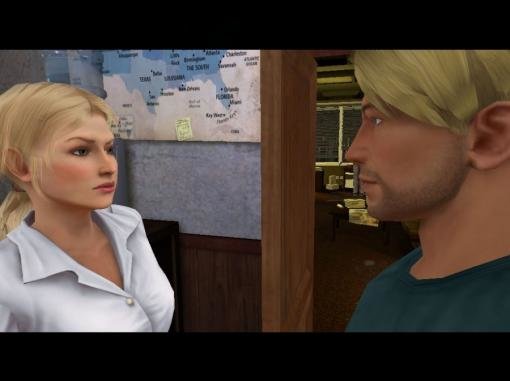
It sounds like an intriguing story.
I've really focused on the story. With Broken Sword 3, it was a big jump. We were going from 2D to 3D. We were talking about technology, we were talking about interfaces. With Broken Sword 4 there's a lot I can take for granted, because we have the engine, we have a control system, which we're improving, but other people are responsible for the technology, other people are responsible for creating the art assets. I approve them, and I get very involved in them, but I don't have to worry about whether we use Maya or Max, or whether we have to buy new PCs, or any of that dull stuff. So I can focus on the puzzles and the story, and the guys that I'm working with on that are experienced on our games. I'm working with a guy called Neil Richards, who I worked with on Broken Sword 3. The two guys that are level designers / implementers, both were ex-Revolution. The guy writing the music, he wrote music for Broken Sword 3. A lot of the team are still together, it's just in a very different way than the way we were for Broken Sword 3.
Like you said, Broken Sword was supposed to be a trilogy, so I think people were surprised when the game was announced.
Actually, quite the opposite.
You think people expected it?
Oh yes. I think people rather assumed there was always going to be a fourth. We had a lot of people emailing us, saying, "You are doing a fourth, aren't you? All this trilogy stuff is not to be taken literally, right?" So it's very much people expecting a fourth, rather than us with a cynical marketing ploy.
 |
 |
What platforms will Broken Sword 4 be on?
Currently it is PC only.
Did the console releases of the last game do well for you?
They did pretty well. Of course, when you do a console version, it means you make compromises. The PlayStation 2 definitely compromised the PC version.
Did you decide to make this game PC only so you won't have to compromise it? What's the reasoning behind the decision?
Two things. One, it means that technically we can do an awful lot, which is great, it gives us the freedom. The second is that THQ felt that the natural home for an adventure is PC. We hope that a number of people who bought Broken Sword 3 on console will buy this one on PC if they can't buy it on consoles.
Do you already have a publisher agreement in place for North America, as well as in Europe?
Yes, with THQ.
They're publishing it globally?
Oh yeah, and it's great, we're delighted. They published Broken Sword 3 throughout Europe, and DreamCatcher published it in North America. It makes a lot more sense, frankly, for one publisher to cover the whole world. It means that everybody's working together. I really like DreamCatcher, and I enjoyed working with them. I just think it's more appropriate for one publisher to cover the whole world.
Is the game still coming out in June?
September. But it hasn't slipped. There's a very good reason for it to be September, which we haven't announced yet.
You're also working on The Da Vinci Code, which is more of an action/adventure game. Do you think adventure gamers will be interested in it? Or is there too much action for this audience to really enjoy it?
It's been designed as an intelligent game. It has elements of action, but it's not an action game. It's an adventure game with elements of action.
Would you say it's more of an action game than Broken Sword 3 is?
Oh yes. It's a very interesting project. I got involved very heavily at the beginning, much less so at the end. My role was to design the story and the high-level puzzles. It was absolutely vital that the game come across as intelligent. The book is an adventure, it's a classical detective adventure. That's what the game is, a detective adventure game with elements of action.
Is it based on the book, or the screenplay?
It's based on the screenplay. The screenplay is very similar to the book.
 |
 |
Have you played Gabriel Knight 3? Before this game was announced, people were always saying the book is so similar to Gabriel Knight 3, they have a lot of the same elements.
There's a big difference though. From what I have played of it, Gabriel Knight 3 is about the mythology surrounding Rennes Le Chateau. The Da Vinci Code is not! To be honest with you, The Da Vinci Code shares a lot more with Broken Sword than it does with Gabriel Knight 3. The book and the movie are about the idea that an ancient conspiracy has resonance in the present day, and that an ancient conspiracy has resurfaced to threaten our protagonists. We all explore themes that overlap.
I just got a Nintendo DS, and I bought the GameBoy Advance version of the first Broken Sword game, which is so cool.
It's fun, isn't it?
It is, I like it a lot. Is there any possibility of Broken Sword 2 coming out for the Nintendo DS?
Broken Sword 1 has just been released on Palm, and it's going to be very shortly released on PocketPC. It's based on the port that came out for the GBA. Broken Sword 2 was in development for GBA but never released, so we have all the assets, and we intend to do Broken Sword 2 at some point on Palm and PocketPC. I really like the DS as a platform, but I don't see Broken Sword appearing on it.
Why not?
I think we need to do something new. The DS has a different audience. I think it needs an original IP, to be honest.
 |
 |
Have you played any adventures on the DS?
Another Code, which is fun. I haven't played the detective game [Phoenix Wright], which is a terrible sin, but I'm looking forward to it when it releases in Europe.
I'd love to see more games like these, but there haven't been any more adventure games announced for the DS.
I think there is demand. The nice thing about the DS is that the production values are a lot lower, and people don't have the same expectations as they do on a console. That, in many ways, is quite liberating, because it means you can do sort of funky things and the production values don't get in the way. The opportunity that the DS gives for innovation, with the dual screen, it's just exciting. At the moment, with Da Vinci Code and Broken Sword 4, I have no time to do anything else. But at some point it'll calm down. I'm also not up to date in my games. Another Code, I've played for an hour... I need to finish these games, I really do.
The last thing I wanted to ask you about is Beneath a Steel Sky 2. Does it exist?
As a design, yes. And as a little bit of work, yes, but it's not in production. We just don't have the bandwidth. One of the things that people say about Revolution, "Oh, they're so generous, they gave away Beneath a Steel Sky for free." From my perspective, we weren't earning much money from it. I'm so pleased that it's so widely distributed now [with ScummVM]. It's on Linux, you can play it on PSP, it's very widely distributed. And that's great, everybody wins, instead of being one of these franchises that just sort of disappears, that people covet and say they're never going to give it away. We've lost very little because it wasn't selling much anyway, and it's now getting a bit of a cult status. So I'm just delighted.
That's a great attitude. I wish more companies thought that way.
The point is, though, that Revolution's so small, we can just make decisions. We don't have to go through attorneys and management committees, we can see the big picture a lot easier than our huge competitors... we don't have to discuss the ramifications with the legal people saying, "But what if you did this, what if you did that"... it's just not worth it. Whereas we can just sit down and go, "That's a cool idea. Let's do it!"
Many thanks to Charles Cecil for giving us a peek into his busy mind. To see how all these ideas translate into gameplay, stay tuned to Adventure Gamers for more Broken Sword 4 coverage in the next few months.



